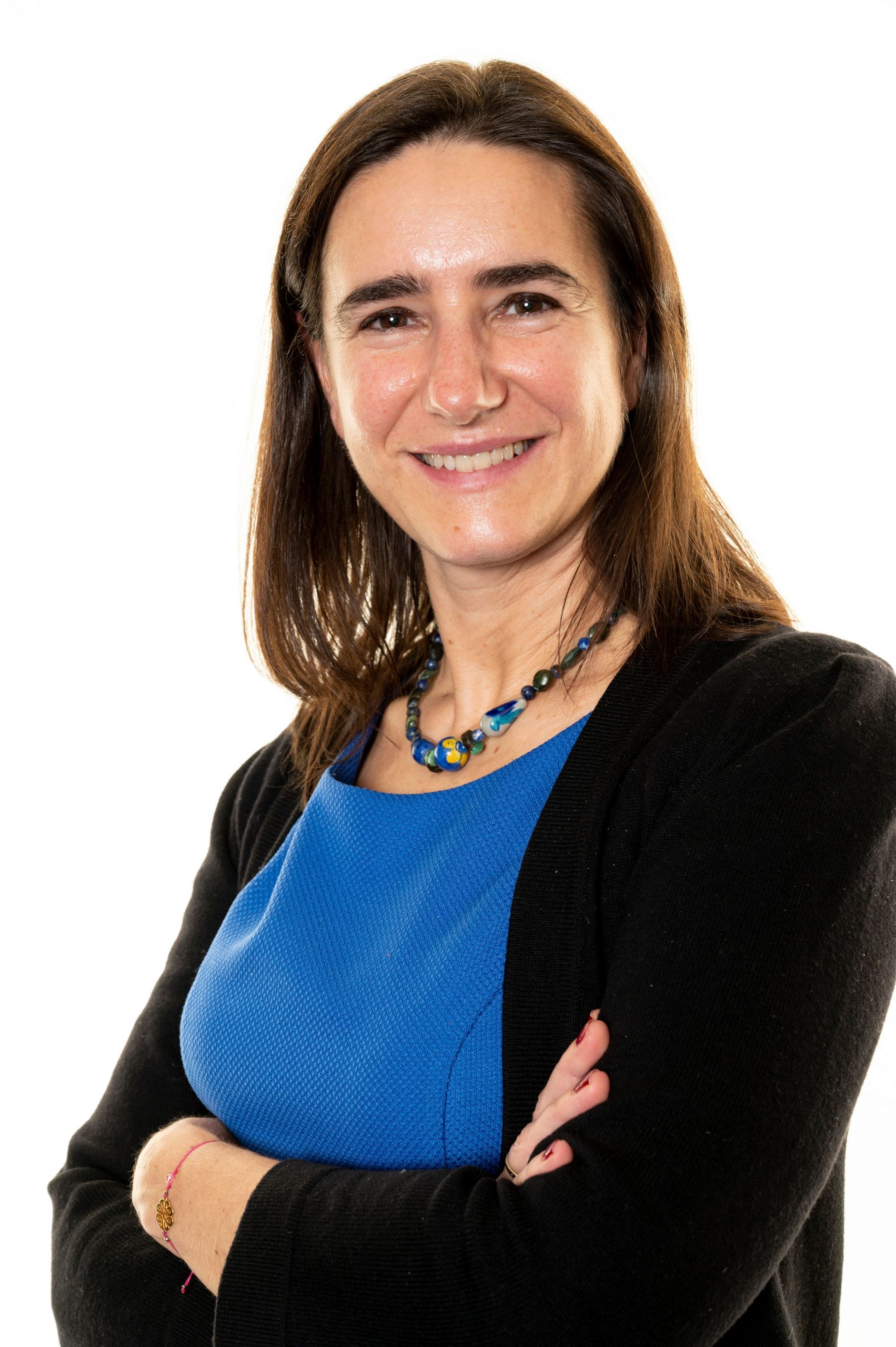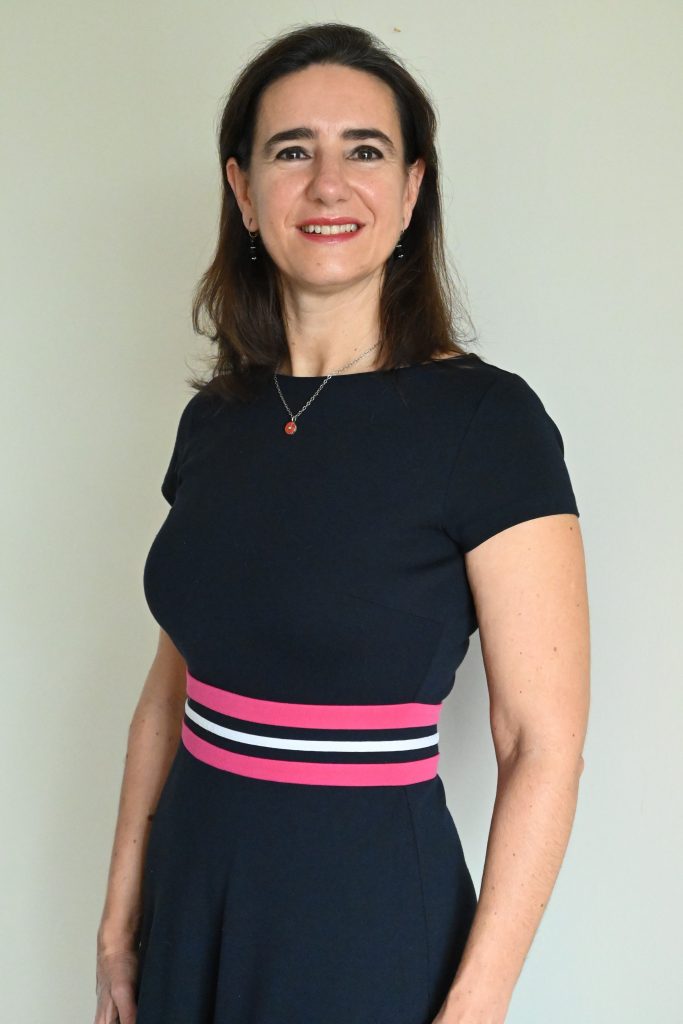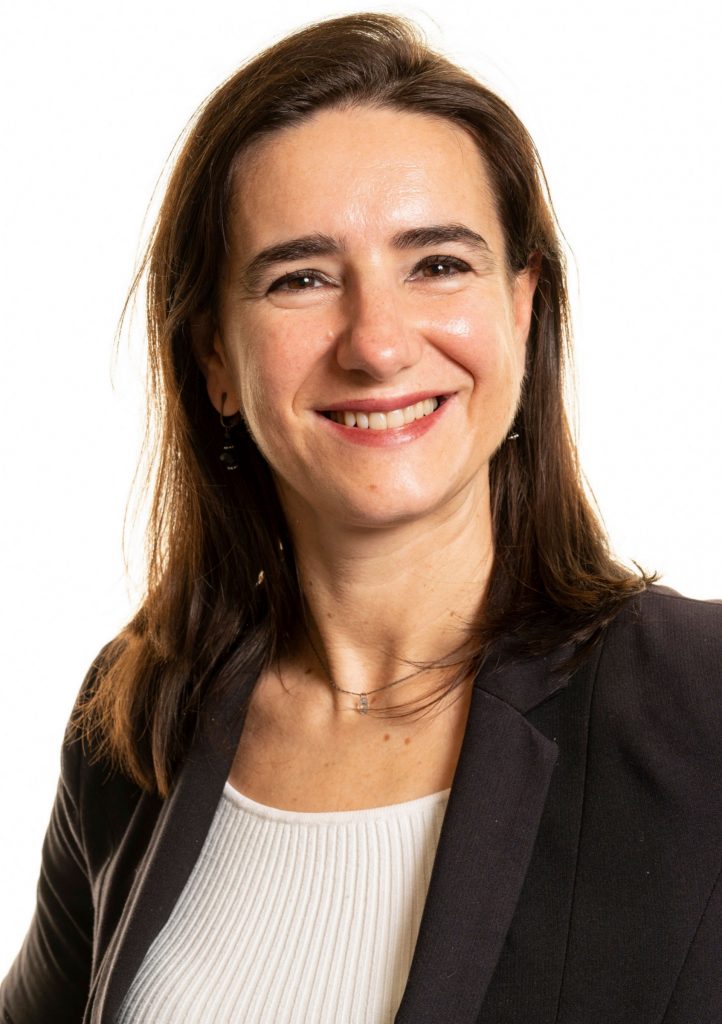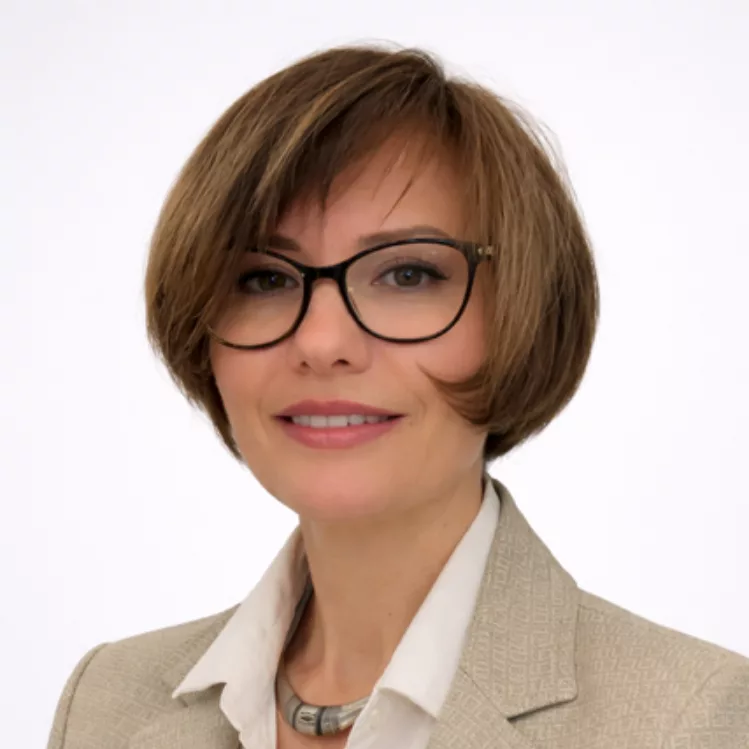
Jasmina Negrini, the Barclays Chief Officer: How to Get the Career Growth You Need
Jasmina Negrini currently works at Barclays in the Chief Operating Office for Europe and the Middle East. Jasmina has over 20 years of experience in financial services and she is also a vastly travelled multilingual speaker. Her passions are centred around making a difference for future generations – both environmentally and socially. Below, she shares how she became a successful woman and delves into her upbringing, education and career.
“The resilience and mindset that I developed during my formative years, and through the exposure to different cultures, allowed me to take calculated risks, comfortably.”
How did your cultural upbringing shape you into the successful woman you are today?
When I was young, growing up in small-town Italy, it was not a welcoming place for foreigners. I was a bit of an outsider as a child, being of mixed Italian-German parentage, especially because we spoke German at home. As I was one of the very few children with a parent from a different country, I was frequently asked whether I felt more German or more Italian. So, I started looking at myself to find traits that would help me answer that question. I was exposed to the complexities of different nationalities and how historic events can impact families. I met some of my Mum’s family only after the fall of the Berlin Wall, and the family of my Dad’s Aunt in Argentina, where they emigrated after the war. This developed my curiosity and my drive to go out into the world to learn more about it, which inevitably meant continuing to learn about myself.
When I went to university, I moved abroad for a year with a grant from the European Union. By the time I moved to the UK, it was a big jump into the unknown and the first time I fully supported myself financially, but I felt ready for it. Of course, I had my moments of doubt, but I also had trust in my capabilities and what I had learned in my experiences of working summer jobs in Germany and travelling around Europe with the Interrail pass. The resilience and mindset that I developed during my formative years, and through the exposure to different cultures, allowed me to take calculated risks comfortably. These skills have been a focus of my personal life and career. I would quit secure jobs and take sabbaticals to travel the world by myself, and I would start from scratch upon my return to London.
Self-reliance is also something that is important for me, not only in the sense of being self-sufficient, but also in having a deep understanding of one’s own strength and resourcefulness, which has been a great help in my professional life and for effective delegation and empowering others. My travels and exposure to international environments have taught me how to deal with people from all backgrounds and ways of life. I have learned how to negotiate and adapt as unforeseen circumstances unfold and things do not always go to plan; these have proven to be useful skills in business too.

You can speak six languages. Which languages can you speak, and how did you come to learn them?
My parents encouraged me to learn two languages by speaking German at home, as my dad also speaks it. My mum also had the rather odd idea to make my brother and I attend her old school in Hamburg, during the summer holidays. It seemed crazy and sad as children to be spending the holidays at school, but it gave us a chance to meet the neighbourhood children. I later appreciated that it enabled a first-hand experience of the German schooling system.
I was always fascinated by languages and culture, and how knowledge of both enables connection with people at a much deeper level. So, at 16 years old, I started taking evening classes in Spanish and a year later, classes in French. That eased my university studies in France, and allowed me to sustain exams in French and compete with native students. I later learned Portuguese during my travels in Brazil, perhaps helped by my knowledge ofLatin and ancient Greek in school. I am absolutely fascinated by etymology, and how these ancient languages still live through the languages we speak today – even in English, where we use more Latin- or Greek-based words in everyday conversations than we imagine.
As a well-travelled individual, where is your favourite place to visit and why?
I believe all places have something to offer and have their own beauty, even those where it is not immediately apparent or where poverty, violence and injustice are overwhelmingly visible. Personally, I have always been attracted by what we do not have in Europe: the vast open spaces and the sense of infinity they transmit, reminding us that we are a tiny part of the universe. In general, natural landscapes, whether it is mountains, volcanoes or glaciers, have always had a great impact on and generated curiosity in me, as they reflect the power of nature. Although, during my travels, I have also missed what I am so accustomed to, that perhaps I take it for granted: the richness of the cultural heritage we are so lucky to have preserved to this day in Europe, and in Italy in particular.
If I had to choose one favourite holiday destination, it would be the Greek islands – with their perfect blend of blue waters, relaxed lifestyle and hospitality, ancient sites and of course, mythology!

What advice would you give to entrepreneurs tackling social and environmental challenges?
Before providing any advice, I think it is important to acknowledge that everyone I have met through my volunteering has a unique story, with their own drive and purpose to make things better, which I find admirable. I am a strong believer in the power of social and innovative enterprises, providing solutions for the great challenges of our times. It also makes commercial sense, as these challenges will only become costlier to resolve the longer we leave them. While I am the proud winner of the Micro-Tyco Award for Leaders’ Entrepreneurial Excellence, for championing the UN’s Sustainable Development Goals, I needed to leverage my colleagues to deliver results. Therefore, my advice to an entrepreneur would be to rely on your strong initiative and beliefs but also seek help and counsel.
At Barclays, I participate in a variety of programmes that help charities and for-profit ventures address challenges and develop their strategy. As an example, Barclays has a multi-year partnership with the Unreasonable Group, which launched the world’s first international network focused on scaling up entrepreneurial solutions that help employ thousands worldwide while solving the most pressing societal challenges.
One of the programmes of this partnership brings together seasoned Barclays professionals with entrepreneurs, helping them tackle business challenges. We do this by offering experience-based advice, opening up our network and forging connections. As these entrepreneurs are established start-ups at venture stage, challenges often revolve around their growth strategy, and the key advice is about how to do it sustainably with the necessary support structure in place.
While that programme is global and looks at addressing both environmental and social challenges, other partnerships are more specifically geared towards working with local communities, helping charities and social enterprises develop their strategy and overcome the barriers preventing them from achieving their full potential.

“I want to continue to drive inclusion, to make sure there is diversity of thought in business conversations.”
As someone who has a strong passion for diversity, equity and inclusion, how do you plan to make a difference for future generations?
Diversity, Equity and Inclusion (DEI) are a real passion of mine and have always been at the forefront when making important decisions. Leaving things better than I found them has a lot to do with DEI in my opinion. In the past, I have focused both on helping individuals through mentoring, connecting people and creating opportunities by pioneering collaboration and intersectionality across different diversity networks. I chaired the Gender Network at JP Morgan in 2010 and, for the first time there, included men in the conversation to recognise the importance of allies.
I continue to progress the idea that men need to be included and actively participate in driving gender parity. When I worked in partnership across Barclays to improve awareness and support for menopause, inclusion was essential for me, and it meant thinking of the non-obvious person or category. Men, and indeed younger colleagues and managers, may not be the first ones who come to mind in relation to menopause. However, equipping all colleagues with tools and resources to provide support was integral to the success of the implementation. I am convinced that equality, and more importantly equity, can only be achieved when everyone has a role to play, including those in a support role.
I want to continue to drive inclusion, to make sure there is diversity of thought in business conversations. I also continue to support local organisations focusing on those female-led groups that are looking to address social or environmental issues. I think they are deeply interlinked and bring together my passions, giving me the opportunity to make the most impact. And, next up, I will be taking on a role with Leaders in Partnership, a community coaching programme.





